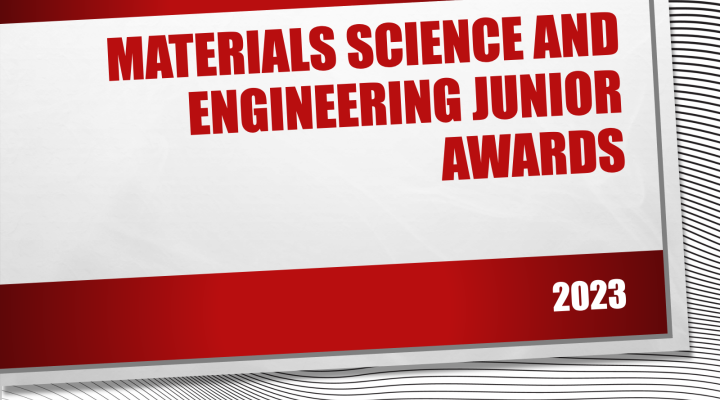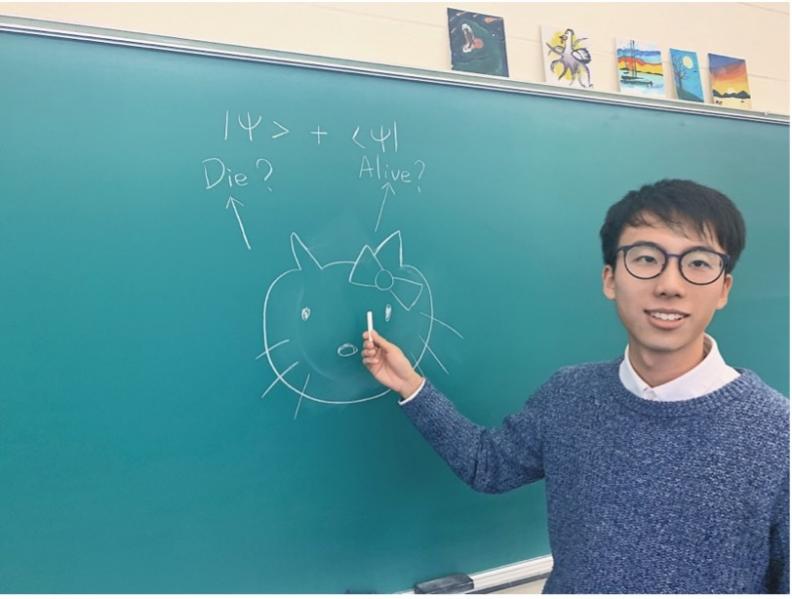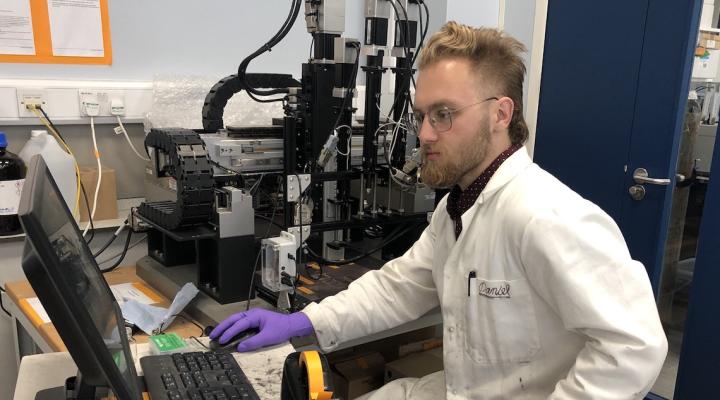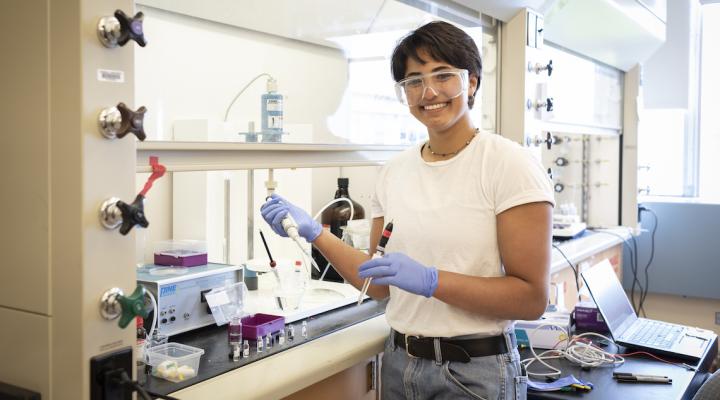What inspired you to choose your field of study?
The changes in materials innovation and applications are revolutionary today, and I want to be at the forefront of predicting and simulating novel materials to foster cheaper, faster, and more sustainable functional materials in the future. Beyond innovating materials in the lab, I expect to integrate materials to promote people’s living quality, and to provide engineering solutions for current global, societal, and environmental problems. I believe that I am to society what an atom is to a material — just as materials engineers changing materials’ macroscopic properties by altering microstructures, I believe that I can positively influence society by improving myself.
Why did you choose Cornell?
I am a transfer student. I spent two years at Sichuan University in China as a freshman and sophomore, and then transferred to Cornell as a junior and senior. Through the first two-year college life, I was thrilled by MSE made the decision to become a materials scientist, to foster the invention of future materials as well as predictions of new materials’ properties. I was looking for more research opportunities and I realized that Cornell MSE enables me to get access to cutting-edge knowledge and topics. I always hope to engage in life-long learning, and I believed that Cornell would make another meaningful step in this journey.
Tell us more about any current research you’re working on:
At the beginning of the spring semester of my junior year, I joined both Prof. Debdeep Jena and Prof. Huili (Grace) Xing’s group in the Electrical and Computer Engineering Department and Prof. Lara Estroff’s group in the Material Science and Engineering Department. In the Jena-Xing group, I derived Tight-Binding models from the atomic-orbital and maximally-localized Wannier functions to describe the valence and conduction band states of α and β - Ga2O3 using the PythTB program. I identified a minimal set of orbitals that accurately reproduced low and high-energy features of the conduction band, effective mass (less than 1% deviation from experimental values) as well as bandgaps (less than 0.1% deviation from experimental values), in satisfactory agreement with standard DFT band structure. This research was presented at the MIT/IEEE 2020 Undergraduate Research Technology Conference (URTC). In this research project, I learned to incorporate experimental data to establish a semi-empirical model, and assess the model quality from different points of view. I am now developing code for the DFT model for α and β - Ga2O3 using Quantum ESPRESSO software to reproduce more key features in Tight-Binding models.
In the Estroff group, my current research project is devoted to exploring non-classical calcite crystallization in the coccolithophore (single-celled marine algae) via a synthetic template system. This project mainly focuses on an understanding of the chemical environment inside nanoscale biological interphases that control crystallization in vitro. During the lab closure due to the COVID pandemic, I used my previous coding experience to develop code for unsupervised block copolymer pattern recognition in atomic force microscopy (AFM) images in MATLAB for a side project. I am currently in the process of conducting my senior thesis research synthesizing calcite on micro-contact printed self-assembled monolayers (SAMs) interfaces, including their characterization in situ with AFM. This research project provides me a unique perspective to investigate crystallization pathways, and a guideline to create synthetic systems in a series of control experiments.
What hobbies do you have in your spare time?
I play basketball and have good food with friends
Do you have any advice for incoming Engineering students?
One piece of advice is to realize that you will not always be perfect at Cornell. Cornell is such a place for you to make mistakes in class, in office hours, in exams, or in project teams But don’t feel humiliated since you always have a chance to correct them at Cornell. All the decency comes from you correcting your mistakes, learning from them, and always having the courage to take the next mistakes.
What is next for you?
Heading to MIT Department of MSE for Ph.D. study.
Where do you see yourself in 10 years?
I tend not to say definite things about the future because I know all future possibilities are in a quantum superposition state to me. But I am always ready to uncover the box to check that live-or-dead cat!





